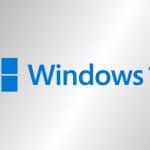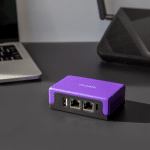Microsoft is bringing Windows 11's game-enhancing DirectStorage feature to Windows 10

Microsoft has eliminated one of the reasons for people to upgrade to Windows 11 later in the year. The company has revealed that DirectStorage -- the storage technology behind Xbox’s Velocity Architecture -- will also be available in Windows 10.
The launch of Windows 11 has already been mired in poor communication in relation to hardware requirements, and it's not clear if the apparent change of heart with DirectStorage in Windows 10 is down to continued weak messaging, or if the company has performed a U-turn based on feedback from disgruntled gamers. Either way, anyone choosing to stick with Windows 10 will benefit from DirectStorage, although it will be a lesser experience than in Windows 11.
Intel document backs up Windows 11 October release date rumors

It is far from uncommon for software companies to be a little vague when it comes to releases dates. By keeping their cards close to their chest, any delays in launches can be overlooked on the basis that if no release date has been announced, it can't be missed.
And so with Windows 11. When Microsoft announced the upcoming operating system we were simply told that it would be ready in time for the holiday season. However, there have been hints, rumors and suggestions that Windows 11 will launch in October, and this has been further hinted at by documentation from Intel.
How real live phishing emails can help protect users [Q&A]

Phishing remains one of the most popular attack vectors for cybercriminals. But traditional defenses relying on filtering or raising user awareness via training aren't always effective.
We spoke to Lior Kohavi, chief technology officer at enterprise SaaS security specialist Cyren to discover how a new approach is using genuine attacks to help both educate users and keep phishing emails out of our inboxes.
Microsoft issues advice after hackers bypass Windows Hello security

Security researchers have shown that it is possible to bypass the biometric security of Windows Hello. Using a fake web, the CyberArk Labs research team was able to fool the facial recognition component of Windows Hello to send infrared images.
Windows Hello requires a camera with RGB and IR sensors, but the security tool actually only uses IR imagery. Using a custom USB device, hackers can manipulate the stream of data that is sent, injecting IR imagery of an authorized user.
China accused of large-scale Microsoft Exchange Server hack

The US, UK and other allied nations have accused the Chinese Ministry of State Security of engaging in a global hacking campaign. Included in this was an attack on Microsoft Exchange servers earlier in the year, and other activity that has been described as "irresponsible and destabilizing behavior in cyberspace".
China has been called on to "end this systematic cyber sabotage", and a statement issued by the White House said that "an unprecedented group of allies and partners are joining the United States in exposing and criticizing the PRC’s malicious cyber activities".
Firewalla goes Purple to protect gigabit networks

Regular readers will recall that last year we reviewed the Firewalla, a little box that provides protection for your network.
We tested the Blue version that provides protection for networks up to 500Mbps in speed. Now the company is launching a new Purple version that works at gigabit speeds and has extra features too.
Investigation uncovers global abuse of Pegasus malware to spy on journalists, activists and more

Spyware produce by the Israeli surveillance firm NSO Group has been abused by governments to target dissenting journalists, activists, lawyers and more, an investigation by human rights groups and media organizations has found.
The Pegasus spyware was produced with the intention of targeting terrorists and other criminals, but an investigation into a huge data leak shows that it has also be misused by authoritarian governments to gather text message, photos, call logs and more from iPhones and Android handsets. The malware can also be used to acti8vate the microphone of a targeted device to eavesdrop on conversations. Targets includes not only journalists and activists, but also key business figures, members of government, presidents and prime ministers.
TEAMGROUP unveils MP34Q M.2 NVMe SSD

Solid state storage technology is constantly improving. The truth, however, is while PCIe Gen 4 SSDs are now available, they are total overkill for most consumers. Heck, most people would be absolutely fine with a SATA drive. With that said, the previous-generation PCIe Gen 3 SSDs are now much more affordable (and quite fast) making them a smart buy whether you truly need the extra speed or not. In other words, a SATA SSD should be avoided nowadays unless your PC simply isn't compatible with anything else.
Today, TEAMGROUP announces its latest NVMe PCIe M.2 solid state drive, and it is offered in capacities up to 8TB. Called "MP34Q," the PCIe Gen 3 SSD it is quite fast with read speeds up to 3,400 MB/s and write speeds up to 3,000 MB/s.
Intel releases updated graphics driver with Windows 11 support

With the official release of Windows 11 edging ever closer, it's not just consumers that are readying themselves for the new operating system; hardware manufacturers and software are working hard to ensure Windows 11 compatibility.
To this end, Intel has just released a new graphics driver that adds support for Windows 11. The updated driver also includes support for AutoHDR feature of Windows 11 on 10th generation Intel Core processors with Iris Plus Graphics or higher.
Microsoft is shipping Windows 11 in dark mode by default

Whether it is because of concern about eye health, or just a general aesthetic preference for more muted colors, dark modes have become prevalent in apps and operating system. Windows is no different in this regard, and with Windows 11 Microsoft is giving dark mode a promotion.
The company has revealed that Windows 11 will have dark mode activated as standard. It will, of course, remain possible to switch to a lighter option, but dark mode will be the default setting out of the box.
Netflix video games and other things to expect in the post-pandemic video streaming market

Despite all the unease and uncertainty of the past 18 months, it is comforting to know that there are some things you can rely on: like the billions of dollars in recurring credit card transactions that every media conglomerate has continued to rake in. From legacy names to brand new offerings that launched during the pandemic, the streaming video industry is one of the obvious winners in a world where people spend more time at home.
With that world starting to fade away, though, and as a year and a half of boredom slowly transforms into demand for outdoor and real-world activities, there is no way these services can keep up their record levels of growth and momentum. But that doesn't mean that they're not trying.
Steam Deck is a Linux desktop trojan horse

Switching from Windows to Linux is pretty easy nowadays -- unless you're a gamer. If you are into PC gaming, Windows is still the best operating system for maximum compatibility and performance. Gaming on Linux has gotten better thanks to Steam's Proton, but still, Windows clearly reigns supreme.
With all of that said, Linux gaming is about to get much more possible. You see, Valve's new handheld gaming console is basically just a PC running an Arch Linux-based operating system. The OS is named "SteamOS" and it uses KDE Plasma.
Google is making it easier to hide the searches you want to keep secret

Perform a search using Google, and details of your search are saved in your Google account for posterity -- unless, of course, you take action.
If you want to keep a search to yourself, you could use Incognito mode in Chrome and it will not be saved. Or you could manually delete your search history, although this does mean losing potentially useful historic information; the same is true of the auto-delete option for your online activity. But now there is new option to delete the last 15 minutes of search activity -- just enough to cover your tracks when you need to.
After waking up from PrintNightmare, Microsoft has a workaround for another Windows Print Spooler vulnerability

After the PrintNightmare fiasco of recent weeks, Microsoft has shared information about another Windows Print Spooler security vulnerability.
The issue is being tracked as CVE-2021-34481, and is described as a "Windows Print Spooler Elevation of Privilege Vulnerability". For the time being, there is no patch available, but Microsoft has offered details of a workaround that mitigates against potential attack -- but it is far from being an ideal solution.
The quest for truly integrated digital services

When you first start out on a digital improvement program, it’s important to get buy-in from senior stakeholders. Of course, the reality is that this isn’t always as easy as it seems. To navigate any preconceptions at Chesterfield, we decided to badge our project as an ICT improvement program, and the main reason for doing this was to secure support from Councillors.
We also decided to split the program into two with one workstream focusing on infrastructure and networks and the other looking at business process improvement. The main goal of the program is to remove technical debt, data silos and any difficulty with case management. No more duplication and time-consuming inefficiency and not being able to see the full picture.
Most Commented Stories
© 1998-2024 BetaNews, Inc. All Rights Reserved. Privacy Policy - Cookie Policy.




